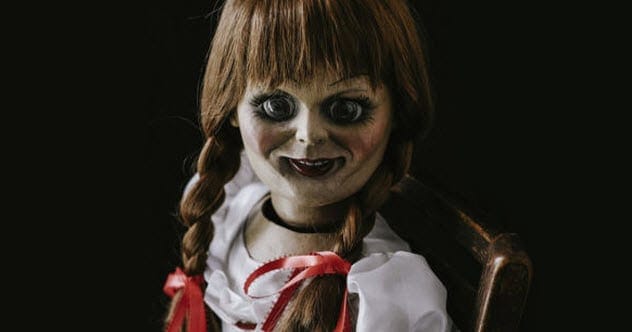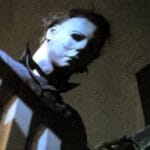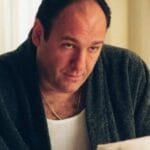Do ghosts exist? It’s a question that sparks endless debate. On one side, science hasn’t found solid proof of anything supernatural. This leads many to think stories of hauntings are just that – stories, maybe even fakes. But believers? They’ll point to personal experiences, mysteries they feel aren’t fully explored, and centuries of spiritual traditions worldwide.
It’s tough for these two sides to see eye-to-eye. But what if we look at some famous ‘haunted’ places that, under scrutiny, seem a bit… off? This list dives into ten such spots, exploring tales that might be old misunderstandings, events proven false, or even clever tricks. Get ready to explore some allegedly haunted places that are likely fake.
10. 1677 Round Top Road, Harrisville: The Real “Conjuring” Story?
You might not know the address 1677 Round Top Road in Harrisville, but you’ve probably heard of the movie it inspired: The Conjuring. This house is famous, partly thanks to the film and partly due to Ed and Lorraine Warren, who were very well-known paranormal investigators, though some find their work questionable.
The story goes that a scary demon, supposedly an alleged witch named Bathsheba Sherman, haunted the house. It sounds terrifying, right? But when you dig a little deeper, the real story of the Conjuring house starts to look more like a spooky fairytale than a real haunting.
First off, the Warrens’ reputation isn’t as solid as it once seemed. Plus, records show Bathsheba Sherman never actually lived at that property, only nearby. There’s no proof she was a witch or evil. The idea of her demon haunting the place? That came from the Warrens, not the original family, and they didn’t offer any strong evidence.
What’s more, the family who originally lived there for ten years reported experiences that didn’t quite match what the Warrens claimed. And guess what? Recent owners of the house say they haven’t experienced any violent or scary events. All this makes the famous haunting seem pretty doubtful.
9. Native American Burial Grounds: A Misleading Trope
This isn’t about one specific place, but rather a common idea – or maybe no real place at all. The “Indian Burial Ground” trope is a familiar theme in horror movies, largely popularized by the infamous “Amityville Horror” (which we’ll get to later). It even wrongly got linked to the haunting in Poltergeist.
The trope suggests that places built on desecrated Native American burial grounds are crawling with angry spirits or demons, out for revenge on those who disturbed their final resting places. It’s a spooky concept, but it’s riddled with problems.
Aside from being a Hollywood invention, this idea is often applied to real life by people who don’t know the full story. Many Native Americans today argue that singling out their spirits as uniquely vengeful is inaccurate and somewhat offensive. More importantly, there isn’t really a single concept of an “Indian burial ground.” Native American cultures are incredibly diverse, each with distinct beliefs and practices regarding death and the afterlife. So, the notion that all these cultures would engage in spiritual practices leading to hauntings of modern buildings is simply false.
8. Skinwalker Ranch: UFOs, Creatures, or Just Stories?
Skinwalker Ranch in Utah is a name that UFO and paranormal fans will surely recognize. It’s said to be one of America’s most paranormally active spots. The tales are wild, ranging from the namesake “skinwalker” – a shapeshifting witch from Navajo lore – to ghosts, UFOs, secret government projects, cattle mutilations, crop circles, and much more.
This property, also called the Sherman Ranch, has become quite notorious, especially among skeptics. Even some believers find the stories a bit too much to swallow. What’s the Skinwalker Ranch truth?
To support a more skeptical view, consider this: the ranch was watched closely for years. The family who lived there before the Shermans (the ones who made the ranch famous) were there for sixty years. In all that time, they reported no strange happenings. Later, Skinwalker Ranch was sold to Robert Bigelow, a businessman fascinated by UFOs, who owned it until 2016. Many suspect the Shermans might have exaggerated or even faked claims to convince Bigelow, a known believer, to buy the property.
7. Swamps: Mysterious Lights and Eerie Feelings
Swamps, bogs, and marshes – these places naturally give off a spooky, imposing vibe. Stories from these misty landscapes around the world tell of everything from creepy ghosts to strange UFO sightings. But one of the most unique phenomena is known as will-o’-the-wisp or ignis fatuus, often called ghost lights.
These mysterious lights have been documented for a very long time, with roots in old European folklore, particularly from England. Though known by different names across Europe, they all describe the same thing: strange, flickering lights seen in swampy areas at night.
There are various explanations, but the most accepted one is scientific. These lights are thought to be a flame-like phosphorescence caused by gases released from decaying plants. Interestingly, even with a scientific answer, actual sightings of will-o’-the-wisps are much rarer today compared to historical accounts. This leaves scientists wondering why that might be the case.
6. Anson Highway: The Ghost Light That Wasn’t
The “Anson Light” was once a hot topic in paranormal circles. This strange ghost light, spotted off a highway in Anson, Texas, captured many imaginations. It made local news and sparked lots of online discussion.
People couldn’t figure out why these weird, bright lights kept appearing in the distance. Some saw them as just odd but harmless, while others believed they were a bad omen. The mystery was particularly popular among college students – a local, spooky tale that had been around for years, or even decades, according to some.
It turns out the explanation was quite ordinary, and it came from a group of college students. Using their iPhones to triangulate the source of the light, the local legend of a ghostly mother searching for her lost child with a lantern quickly dissolved. The truth? The lights were simply car headlights from a nearby road. A classic case of ghost stories explained by simple observation!
5. Devil’s Tramping Ground: No Devil, Just Salt
With a name like Devil’s Tramping Ground, you’d expect a spooky backstory, and this place in North Carolina doesn’t disappoint. It’s one of the state’s most famous reportedly haunted spots. Legend says the Devil himself walks there at night, just as the eerie name implies.
This isn’t just a random scary story from local folklore; there seems to be a reason for it. The Devil’s Tramping Ground is a circular area, about 40 feet across, where supposedly no plants grow, animals steer clear, and objects left there mysteriously move or disappear.
However, the real explanation for most of these claims is quite simple: salt. The ground is a natural salt lick, although it’s gradually shrinking and is now only about 20 feet in diameter. The high salt content in the soil prevents grass from growing and might cause some animals to avoid the spot. As for objects moving? Those claims are poorly documented and likely just part of the spooky legend that makes this place a fun, if not truly haunted, attraction.
4. Excelsior Hotel: Spielberg’s Inspiration or Just Good Marketing?
The Excelsior Hotel in Jefferson, Texas, is a bit of a local tourist hotspot. Many people visit this small hotel because of tales of a terrifying haunting. Adding to its fame, Steven Spielberg himself once stayed there for a night. The story goes that his experience was so frightening it inspired the movie Poltergeist.
While the hotel certainly has an imposing, perhaps slightly eerie, vintage charm, it seems to be mostly what it’s known for – a tourist attraction. The stories about Steven Spielberg are largely anecdotal, perhaps even deliberately played up for effect.
It appears the hotel enjoys the spotlight and the extra business these tales bring in. They encourage tourists from all over to come and “experience” the alleged haunting for themselves, a haunting that seems to be built more on baseless claims than actual paranormal activity.
3. Frankenstein Castle: Monster Myth or Misconnection?
Let’s head outside the United States for this one. Frankenstein Castle is one of Germany’s most famous haunted locations. It’s a creepy, rundown castle, and local lore says it was the birthplace of Johann Konrad Dippel. Dippel was supposedly an alchemist and potion maker who conducted immoral experiments.
As the name and the backstory suggest, many people believe this castle and its eerie alchemist inspired Mary Shelley’s famous novel, Frankenstein. The novel, of course, features a similarly mad scientist experimenting on the dead, much like Dippel was rumored to have done.
While it’s a compelling story, the accounts of Dippel’s activities are shaky at best. More telling, the castle only really became a popular destination for paranormal enthusiasts after Mary Shelley’s novel was released and became a sensation. This leaves little room for the location to be a true inspiration, suggesting it’s more likely an embellished tale that capitalized on the book’s fame.
2. Annabelle House: The Truth Behind the Infamous Doll
Annabelle the doll has become a Hollywood horror icon in recent years, thanks to her prominent role in The Conjuring universe and her own spin-off films. The creepy doll in the movies is based on a real doll, which is currently in the possession of the previously mentioned Warren family.
The movie version of Annabelle’s story is almost entirely inaccurate, which might not be surprising. What’s more damaging to the legend, however, is that the Warrens’ own accounts of the Annabelle doll’s real story aren’t a series of verifiable truths either.
The original family who owned the doll didn’t speak of a horrifying, violent haunting. They described scary experiences, yes, but not extremely intense ones that led them to call paranormal investigators. Ed and Lorraine Warren, however, transformed the story from a simple haunting into a terrifying demonic infestation. This seems to be a recurring pattern with their investigations. As it stands, the account of a violent demon comes solely from them. The original owners never described anything so malevolent and only gave the doll to the Warrens at their specific request.
1. Amityville Horror House: Most Famous Hoax?
The Amityville Horror is a famous book by Jay Anson, an American horror author. The novel claimed to describe the supernatural experiences of the Lutz family. However, it has become incredibly controversial, widely seen as untruthful – a potential Amityville Horror hoax.
Once considered America’s most famous haunted house, the Lutz family only lived there for 28 days. They described horrible paranormal events, violent ghosts, or perhaps even a demon. The tale was often linked to the tragic murders committed by Ronald DeFeo Jr. in the house before the Lutzes moved in.
While a horrifying real-life crime certainly occurred at the house, the paranormal accounts have been described by many who knew the Lutz family, or were even part of it, as one thing: a hoax. George Lutz is often described as a showman by those who doubt his story, mainly because he heavily monetized the events through book and movie deals and actively sought publicity. Christopher Quarantino, who lived in the house as a child with the Lutzes, has stated that his stepfather, George, deliberately amplified and exaggerated any supposed paranormal events for his own financial gain, feeling that their experiences were exploited.
It seems that when you look closely, many famous ‘haunted’ places have stories built more on fiction than fact.
What do you think? Are there other ‘haunted’ places you believe are fake? Share your thoughts in the comments below!










